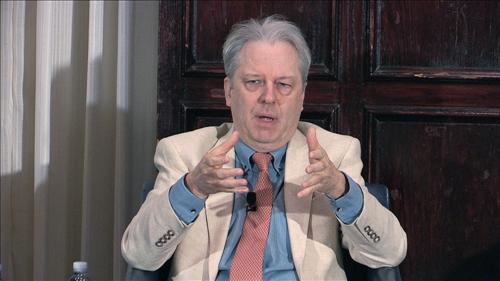US Secretary of State Rex Tillerson talked tough against North Korea, including openly mentioning military strikes, but the real policy isn't likely to be much different from that of the previous administration, a US expert said Sunday.
While visiting Seoul and Tokyo, Tillerson said that the two decades of diplomatic efforts to disarm the North failed, and there was no point in pursuing the diplomatic path any longer. He also said that the US was considering a wide range of options, including the use of military force.
Tillerson also declared an end to former President Barack Obama's much-denounced North Korea policy, known as "strategic patience," which centers on waiting for Pyongyang to show good faith while increasing sanctions and pressure on the regime.
 |
Ken Gause, a North Korea expert at CNA Corp. (Yonhap) |
Tillerson's remarks sound tough, but the substance won't be much different from the strategic patience policy, according to Ken Gause, a North Korea expert who is director of the international affairs group at CNA Corp. in Washington.
"Much of the rhetoric sounds like strategic patience. The US is going to continue to apply pressure on North Korea through sanctions; we are going to pressure China to get North Korea to do the right thing. Although we haven't taken the military option off the table, it doesn't sound like it is the preferred option," Gause said.
"I just see more of the same -- sanctions and pressure. Maybe some adjustments around the edges to make the policy more severe.
However, the lack of a balanced strategy of carrots and sticks will hamstring any US-North Korea policy," he said.
The expert said that Tillerson's tough talk in Seoul and Tokyo appeared to be aimed at a number of different audiences, and designed to show that the era of strategic patience has ended and the US is moving "boldly in a new direction, getting tough on North Korea."
Gause, who has expertise in North Korea leadership, said that there is a good likelihood that the North will look for a chance to respond to Tillerson's aggressive rhetoric with more provocations, including nuclear and missile tests.
"North Korea cannot be seen as being weak in the face of international, including US, threats and pressure. To do so will weaken Kim Jong-un's position within the regime," he said.
Still, Pyongyang would also be careful in determining the timing of additional provocations because aggressive action could galvanize conservatives in South Korea ahead of May's presidential election, Gause said.
"Pyongyang is also cognizant that its actions will have an impact on politics in Seoul. Given that the progressives are leading in the polls, North Korea will want to make sure that it calibrates its response to avoid giving ammunition to the conservatives," he said.
The expert said that dialogue and diplomacy must be a key part of the US policy on the North.
"Dialogue and diplomacy are critical to making any strategy work. North Korea and China most likely do not believe the US will resort to pre-emption or other military pressures out of fear of unintended consequences," he said.
More sanctions, no matter how targeted, can be skirted either by North Korea on its own or in conjunction with China that may or may not vigorously enforce sanctions, and China has larger regional equities that will likely prevent it from fully supporting efforts to denuclearize North Korea, he said.
"The result will likely be that North Korea will continue to accelerate its attempts to develop a viable nuclear program with a capability to target the United States. The closer that this comes to a reality, the harder it will be for the US to avoid the military option," Gause said. (Yonhap)





![[Exclusive] Hyundai Mobis eyes closer ties with BYD](http://res.heraldm.com/phpwas/restmb_idxmake.php?idx=644&simg=/content/image/2024/11/25/20241125050044_0.jpg)
![[Herald Review] 'Gangnam B-Side' combines social realism with masterful suspense, performance](http://res.heraldm.com/phpwas/restmb_idxmake.php?idx=644&simg=/content/image/2024/11/25/20241125050072_0.jpg)

